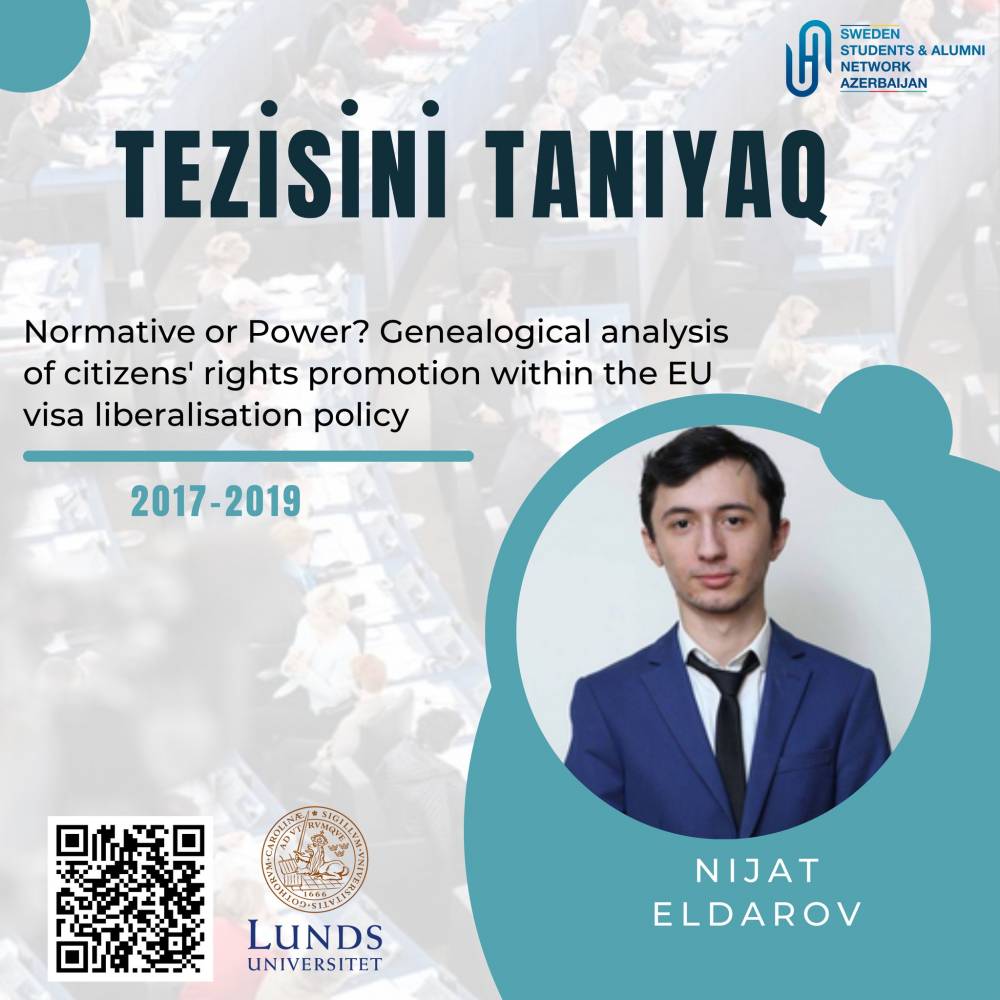The next alumni to learn more about his research topic is Nijat Eldarov. He graduated from Lund University in 2019. Let’s deep dive into the topic which seems quite extraordinary.
Research topic: Normative or Power? Genealogical analysis of citizens’ rights promotion within the EU visa liberalisation policy
The thesis investigates – the promotion of fundamental rights within the EU’s visa liberalization policy in relation to the Eastern Partnership and Western Balkan countries, as well as Turkey from a critical perspective. The visa liberalization process (VLP) has been argued to encompass security-related benchmarks, including document security, border & migration management, and public order & security, and normative benchmarks, including fundamental rights as it relates to rights-based citizenship regimes. The latter has often been framed within the “Normative Power Europe” discourse, which represents the EU’s rule-based commitments in its foreign policy.
This study, drawing on critical security studies and governmentality literature, however, has argued that the Schengen norm promotion instead forms part of the EU’s biopoliticized security apparatus, and thus, prioritizes particular forms of human rights necessary to protect particular forms of production and exchange, aiming to maximize “good circulation” (e.g. bona fide travellers) at the expense of “bad circulation” (e.g. (potential) irregular immigrants) as a part of its wider neoliberal governmentality at a distance. Analysis of 69 (post-) visa liberalization documents, 2 interviews, and secondary literature through Foucault’s genealogical framework thus revealed that the EU’s promotion of minority rights within the VLP represents an interplay of the market discipline of risk management and market discipline of political integration, devoid of purely normative intentions.
The findings suggested further research to view EU visa governmentality beyond the normative/security dichotomy, where human rights promotion can as well be a part of a biopoliticized security network, entitling different degrees of inclusion to the minoritized persons converted into statistical objects for collective surveillance/policing. Finally, it suggested analyzing the construction of (colonial) political geographies through mobility regimes.
After reading the summary of the topic, there are still many useful things we can learn about it. We are pleased to share your research on a topic that is extremely useful for people living or studying within EU borders. You did a fantastic job, Eldar.
Please use this link if you would like us to share your research study with our readers. https://forms.gle/zqTCuETDsAzfC9Tt6



